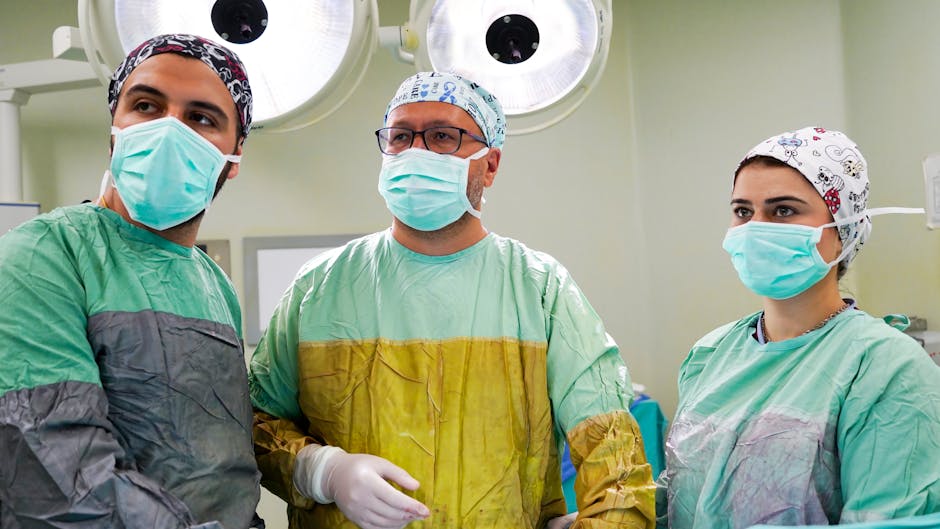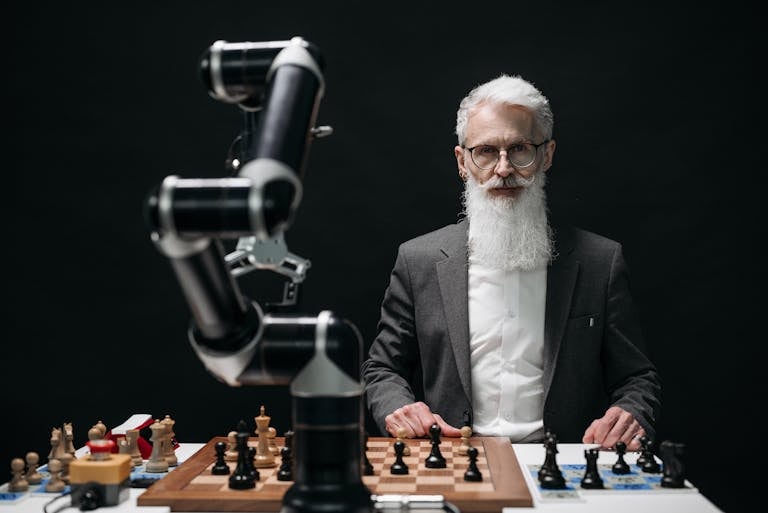
Artificial Intelligence (AI) is no longer a futuristic concept; it’s a present-day reality that’s transforming industries across the globe. One of the most significant sectors experiencing this revolution is healthcare. From diagnosis to treatment and patient care, AI is making waves in ways previously unimaginable. In this blog post, we’ll explore ten ways AI is revolutionizing healthcare, bringing more efficient, accurate, and personalized care to patients.
1. Enhanced Diagnostic Accuracy
Artificial Intelligence algorithms are improving diagnostic accuracy by analyzing vast amounts of medical data. AI systems can process medical images, such as X-rays, MRIs, and CT scans, to detect abnormalities with a high degree of precision. For example, Google’s DeepMind has developed an AI model that can diagnose eye diseases as accurately as world-leading ophthalmologists.
According to a study published in the journal Nature, AI algorithms were able to identify breast cancer with a 94.5% accuracy rate, outperforming human radiologists in some cases.
2. Predictive Analytics for Early Intervention
Predictive analytics powered by AI can analyse patient data to forecast potential health issues before they become critical. By identifying patterns and trends, AI can alert healthcare providers about patients at risk of developing conditions like diabetes, heart disease, or even mental health issues.
For instance, IBM Watson is being used to predict patient deterioration in intensive care units (ICUs), allowing for timely interventions that can save lives.
3. Personalized Treatment Plans
AI is enabling personalized medicine by tailoring treatment plans to individual patients based on their genetic makeup, lifestyle, and other factors. This approach, known as precision medicine, ensures that patients receive the most effective treatments with minimal side effects.
For example, AI algorithms can analyze genetic data to determine the best chemotherapy drugs for cancer patients, significantly improving treatment outcomes.
4. Streamlining Administrative Tasks
Administrative tasks in healthcare, such as scheduling appointments, managing patient records, and billing, can be time-consuming and prone to errors. AI-powered solutions can automate these tasks, freeing up healthcare professionals to focus on patient care.
Chatbots and virtual assistants, like Microsoft’s Azure Health Bot, are being used to handle patient inquiries, schedule appointments, and provide basic medical information, improving efficiency and patient satisfaction.
5. Improving Drug Discovery and Development
The drug discovery and development process is notoriously lengthy and expensive. AI is accelerating this process by analyzing vast amounts of data to identify potential drug candidates and predict their effectiveness.
For instance, AI company Atomwise uses deep learning algorithms to predict the binding affinity of small molecules to target proteins, helping researchers identify promising drug candidates faster and more accurately.
6. Enhancing Patient Monitoring and Care
Wearable devices and remote monitoring systems powered by AI are revolutionizing patient care by providing real-time health data to healthcare providers. This allows for continuous monitoring and early detection of potential issues, enabling timely interventions.
Devices like the Apple Watch, which can detect irregular heart rhythms, are already making a significant impact on patient care and management.
7. AI in Mental Health Care
AI is playing a crucial role in mental health care by providing tools for early diagnosis, treatment, and ongoing support. Machine learning algorithms can analyze speech patterns, social media activity, and other data to identify signs of mental health issues such as depression and anxiety.
For example, Woebot, an AI-powered chatbot, offers cognitive-behavioral therapy (CBT) to users, providing them with real-time support and coping strategies.
8. Optimizing Hospital Operations
AI is helping hospitals optimize their operations by predicting patient admission rates, managing staff schedules, and ensuring efficient use of resources. This leads to better patient care and reduced operational costs.
For instance, AI algorithms can predict patient admission rates based on historical data and current trends, allowing hospitals to allocate resources more effectively and reduce wait times.
9. Advanced Surgical Assistance
Robotic surgery systems, powered by AI, are enhancing the precision and effectiveness of surgical procedures. These systems can assist surgeons in performing complex surgeries with greater accuracy and minimal invasiveness.
The da Vinci Surgical System, for example, uses AI to provide surgeons with enhanced control and visualization during procedures, leading to better patient outcomes and faster recovery times.
10. Facilitating Medical Research
AI is revolutionizing medical research by analyzing large datasets to identify trends, patterns, and potential breakthroughs. This accelerates the pace of research and helps scientists uncover new insights that can lead to innovative treatments and therapies.
For example, AI algorithms can analyze genetic data to identify potential targets for new drugs, speeding up the discovery process and reducing research costs.



